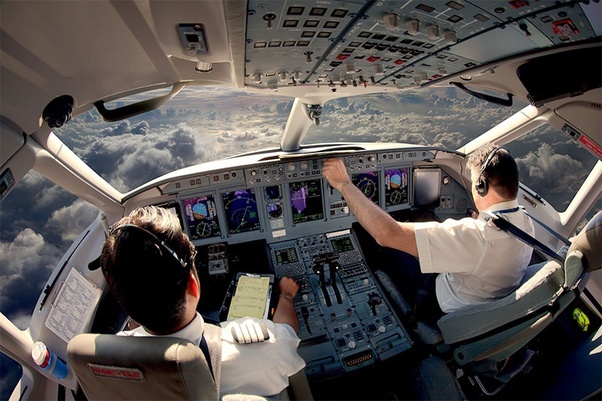The contrail collaboration thus far has been a thing of beauty. Efforts to share research and advance the technology through open discussions and joint trials have accelerated the industry-wide immersion into contrail management. This progress is encouraging and we’re excited to see more and more organizations get involved with raising awareness and taking action. Bit by bit we are getting closer to real-time implementation, but that final step is ultimately going to hinge on one group of people: the pilots.
As it stands, contrail management is not at the forefront of most pilots’ concerns. In a recent Aerospace Ambition podcast with Jeremy Thomson of the British Airline Pilot Association (BALPA), Jeremy commented on how pilots are not being educated on contrails as it’s too early. Yet, he does think that contrail management is our biggest opportunity to reduce aviation’s climate impact. That said, the priority needs to be on advancing the research, and coordinating with Air Navigation Service Providers (ANSPs) and flight operators before implementation can begin. Jeremy believes that there are fewer uncertainties now than a year or two ago, but more studies are needed to further our understanding.1
Speaking of uncertainties, those irksome information gaps that have proven contrail action to be too risky just yet, a European Cockpit Association (ECA) Q&A with pilot Florian Kuderna has yielded some interesting insights into how they impact pilots’ decisions. Though scientific uncertainties abound, the operational challenges such as flying and making tactical adjustments in densely populated airspace mean that most airlines will have to participate in contrail avoidance if it is to be effective. That level of coordination doesn’t come easily, but the air is ripe with cooperation these days.
As mentioned in the BALPA Environment and Sustainability Campaign, we should focus on issues that quickly improve sustainability such as mitigating the non-CO2 effects of aviation by taking rapid action on contrail avoidance. The research is advancing, but it can’t be done without substantial investments and close work with governmental regulators.2 These efforts will accelerate the employment of contrail management, but that conversation cannot be had without the operators of the aircraft.
With safety as their main concern, pilots want to incorporate a high contrail-awareness to enable successful integration of any contrail avoidance strategies. According to some pilots, that awareness and overall contrail confidence can be achieved through these recommendations:
- Improve Weather Forecasting: Reliable ISSR prediction and agreed-upon tools for detection of contrail formation are essential before action is taken.
- Develop Climate Functions: Functions accounting for all aspects of contrail formation and avoidance are needed to minimize overall climate impact.
- Ensure ‘No-Regret’ Policies: Hastily implemented solutions might increase fuel consumption without effective contrail avoidance, harming the environment.
- Quantify Jet Fuel Impacts: Understanding how jet fuel quality affects contrail formation is vital.
- Incorporate Flexible Operations: Develop tools for operators and ANSPs allowing safe, strategic contrail avoidance without compromising flight safety.3
Pilots are experts on the daily realities of flight operations as they happen and, as such, they should have a voice in the efforts to optimize and sustainabilize (yes, I made that word up) future aviation. The above-mentioned list of recommendations is a great frame of reference for progress in contrail management.
Last week, at the Farnborough Airshow we had the chance to speak to pilots from British Airways and Qatar Airways and ask them about their thoughts on contrails. Their responses were an echo of Jeremy Thomson’s comments, as they were all aware of the existence of contrails and how they are created, but they admitted that it is not a subject that is high on the priority list, yet. Currently, their focus is on optimizing routes through the lenses of cost and fuel-burn. They expressed interest in the field of research surrounding contrails, but know that it isn’t quite actionable. Understandable, as more research is indeed needed before there will be any commercial implementation of contrail avoidance, but encouraging to hear that these pilots are aware of and interested in the subject.
We are keen to speak with more pilots and flight operators to gauge their involvement in contrail management and will look out for more information regarding how they think it will best be implemented. With more people across the aviation industry engaging in the contrail dialogue, we can achieve better ideas and quicker solutions.
[1] Aambition Podcast with Jeremy Thomson | How Pilots View Contrail Management
[2] BALPA Campaign | Environment and Sustainability Campaign
[3] ECA Q&A on Contrails | Understanding the Role of Pilots in Climate Neutrality
Additional Resources for the Avid Reader
British Airline Pilot Association | BALPA Contrail Environment Briefing
ECA Pilots’ Perspective | Securing a Sustainable Future for Aviation
ECA Position Paper | European Pilots’ Perspectives/ Views and Recommendations on Contrails

